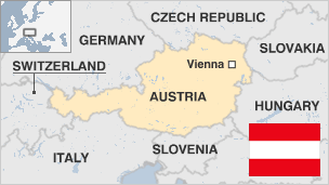
Facts and stats about Austria
Austria is a relatively quiet nation but it is one of the 12 wealthiest countries in the world when it comes to Gross Domestic Product. It has a fully-developed social market economy and high living standards. A lot of privatisation has taken place after the eighties which decreased government holdings to a point which is similar to other economies in the European Union. Labour movement is strong in this country and casts a dominant effect on labour politics. After a well-developed industry, international tourism is the most essential component of Austria’s national economy.
It has been forecasted by the Austrian National Bank that the export-dependent economy will continue to achieve impetus during the first six months of 2014 as it gets out of stagnation that persisted until the middle of last year. Increasing exports helped the economy expand by 0.3 percent in the fourth quarter compared to the previous quarter.
However, Austria has to cope with environmental pressures because of rapid urbanization and expansion of road transportation. Developments in the world economy are testing Austria’s resilience in global industry production chains. The country’s relative advantages in medium technology activities are being threatened by catch-up economies.
Germany is Austria’s major trading partner. Thus, it is also affected by changes in the German economic scene. However, it is also close to other EU countries being a member-state of this organisation. There is a need for modernisation of corporate governance and opening of the service sector to competitive forces. It also calls for modification of the education system to meet the escalating demand for workers with solid and competent skills which are developed through constant learning.
- Agriculture 139
- Background 9
- Conflict 5
- Cost of living 55
- Crime 137
- Culture 36
- Disasters 30
- Economy 2981
- Education 442
- Energy 1605
- Environment 256
- Geography 85
- Government 261
- Health 354
- Import 6
8.22 million
Population. Ranked 94th in 2013.
$47,226.20
GDP per capita. Ranked 11th in 2012.

82,450 sq km
Sq. km. Ranked 110th in 2008.